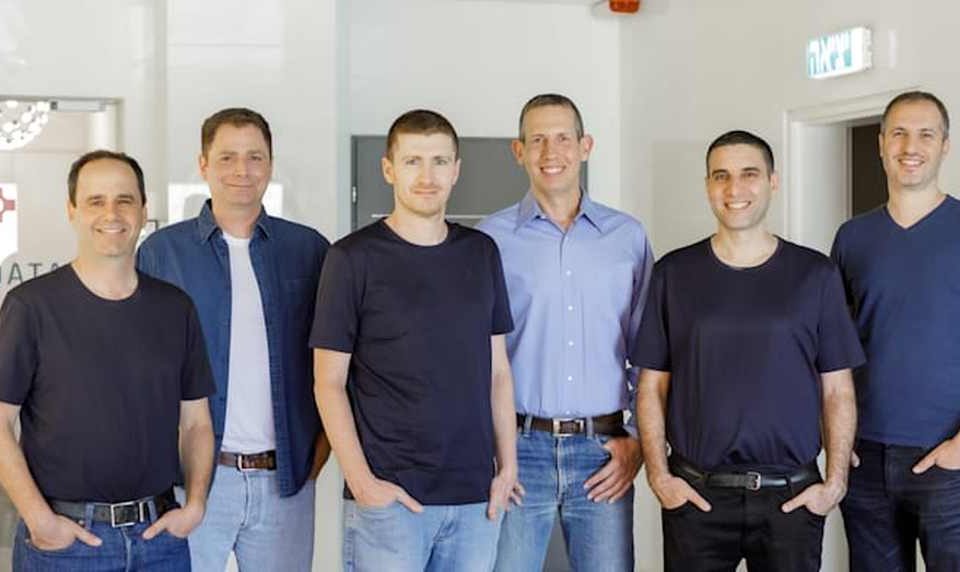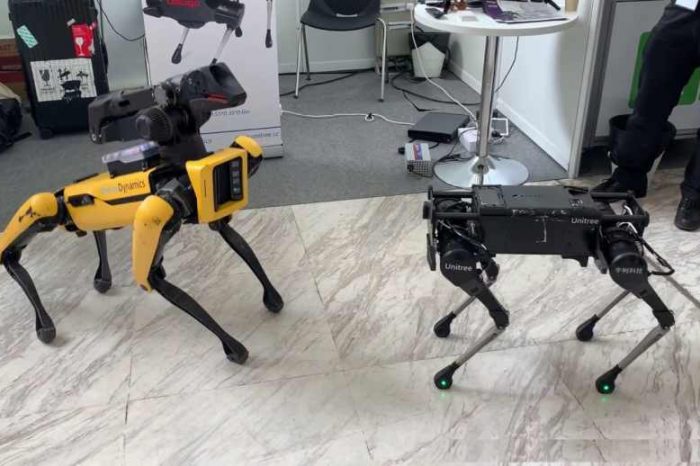Israeli tech startup Speedata launches out of stealth with $70M to accelerate big data analytics

The amount of data created every day is exploding at an exponential rate. According to estimates, an incredible 2.5 quintillion bytes of data are created every day with 90% of the world’s data created in the last two years alone.
However, to make sense out of this large amount of data, they must be captured, routed, stored, evaluated, and retrieved. Today’s general-purpose processors can no longer handle the vast amount of processing required in this age of Big Data, which is why dedicated accelerators will take their place.
Enter Speedata, an Israeli tech startup whose first-of-its-kind Analytics Processing Unit (APU) is designed to accelerate big data analytic workloads across industries. Speedata is building the world’s first dedicated accelerator for expediting cloud-based database and analytic workloads by orders of magnitude and is set to disrupt the way analytics are processed in data centers.
Today, Speedata announced its exit from stealth with $70M in funding. The round was led by Walden Catalyst Ventures, 83North, and Koch Disruptive Technologies (KDT), with participation from existing investors Pitango First, Viola Ventures, and prominent individual investors including Eyal Waldman, Co-Founder and former CEO of Mellanox Technologies.
In conjunction with the funding, Speedata said that both Waldman and Lip-Bu Tan, Managing Partner of Walden Catalyst Ventures, Chairman, Walden International and CEO, Cadence Design, will join its board of directors. This latest funding round brings Speedata’s total amount raised to $70 million, including a previously undisclosed $15 million seed round led by Viola and Pitango.
Speedata was founded in 2019 by Jonathan Friedmann, Dan Charash, Rafi Shalom, Itai Incze, Yoav Etsion, and Dani Voitsechov, a multidisciplinary team of academic and industry leaders with a unique track record of building successful semiconductor startups. The startup is building the world’s first dedicated processor for optimizing cloud-based database and analytic workloads, set to disrupt the way analytics and databases are processed in datacenters – crucial in an age of big data.
The amount of data expected to be created in the next three years will exceed the amount created in the past 30 years, while revenue from big data analytics is expected to grow to nearly $70 billion by 2025. When utilized optimally, database analytics serve as a gamechanger for enterprises, cloud providers, private data centers, and others across industries. Accelerating analytics workloads can help organizations garner better business intelligence, accelerate ETL (extract, transform, load), and achieve scientific breakthroughs, among other key goals.
A server with Speedata’s APU will replace multiple racks of CPUs, dramatically reducing costs and saving space. The unique accelerator will empower industries to execute big data analytics faster, more efficiently, and economically, and with less energy consumption – including healthcare, finance, telecommunications, real estate, and others.
“Analytics and database processing represents an even bigger workload than AI with regard to dollars spent. That’s why industries are anxiously seeking solutions for accelerating database analytics, which can serve as a huge competitive advantage for cloud providers, enterprises, data centers, and more,” said Jonathan Friedmann, CEO & Co-Founder of Speedata. “However, current processing units aren’t designed to manage today’s workloads. Our amazing team of academic and industry leaders has built a dedicated accelerator that will change the way data center analytics are processed – transforming the way we utilize data for years to come.”
Until now, leading cloud players have been using CPUs for analytical processing. Some have recently begun developing big data accelerators utilizing FPGAs, with very limited capabilities. Speedata is developing the first processor architecture dedicated solely to data analytics.
“Datacenter analytics are being completely transformed, and accelerated processors are set to play a substantial role in this revolution,” said Eyal Waldman, Co-Founder and former CEO of Mellanox Technologies and board member at Speedata. “Much like NVIDIA’s GPU revolutionized the AI space, Speedata’s unique APU will transform database computing. Data processing is a swiftly growing, multi-billion-dollar market in which acceleration will unleash the use of data in the applications of tomorrow and help countless entities reliant on big data innovate and compete. I look forward to supporting this extraordinary team as they reimagine big data processing for years to come.”
Speedata’s scalable architecture addresses the main bottlenecks of analytics, including I/O, compute, and memory, effectively accelerating all three. This unique architecture is compatible with all legacy software, allowing for seamless migration of workloads, with no changes necessary to an enterprise’s code or existing framework.




